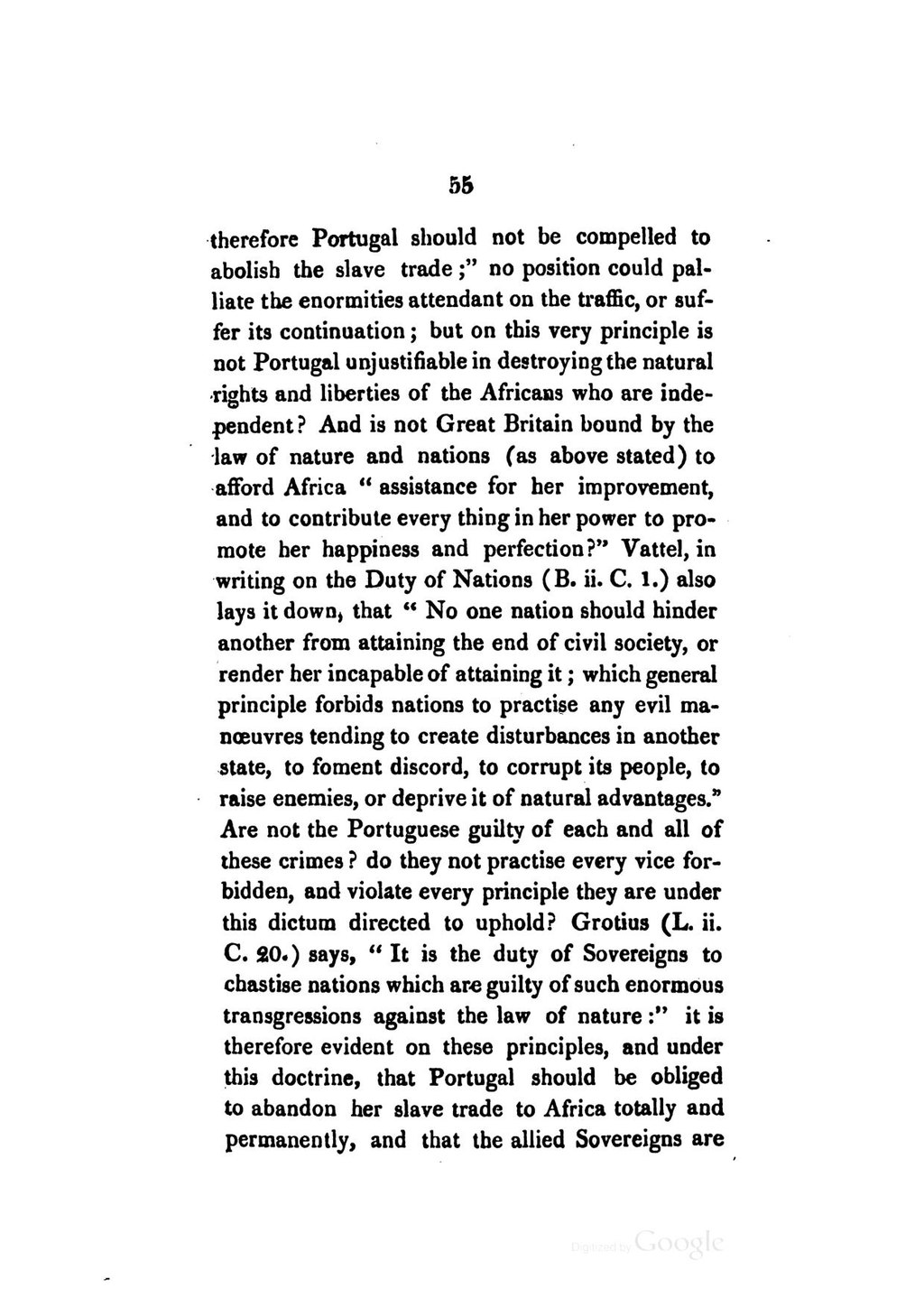55
therefore Portugal should not be compelled to abolish the slave trade ;” no position could palliate the enormities attendant on the traflic, or suffer its continuation; but on this very principle is not Portugal unjustifiable in destroying the natural rights and liberties of the Africans who are independent? And is not Great Britain bound by the law of nature and nations ( as above stated) to afford Africa “assistance for her improvement, and to contribute every thing in her power to promote her happiness and perfection?” Vattel, in writing on the Duty of Nations (B. ii. C. 1.) also lays it down, that “ No one nation should hinder another from attaining the end of civil society, or render her incapable of attaining it ; which general principle forbids nations to practise any evil maneuvres tending to create disturbances in another state, to foment discord, to corrupt its people, to - raise enemies, or deprive it of natural advantages.” Are not the Portuguese guilty of each and all of these crimes? do they not practise every vice forbidden, and violate every principle they are under this dictum directed to uphold? Grotius (L. ii. C. 20.) says, “ It is the duty of Sovereigns to chastise nations which are guilty of such enormous transgressions against the law of nature :" it is therefore evident on these principles, and under this doctrine, that Portugal should be obliged to abandon her slave trade to Africa totally and permanently, and that the allied Sovereigns are
